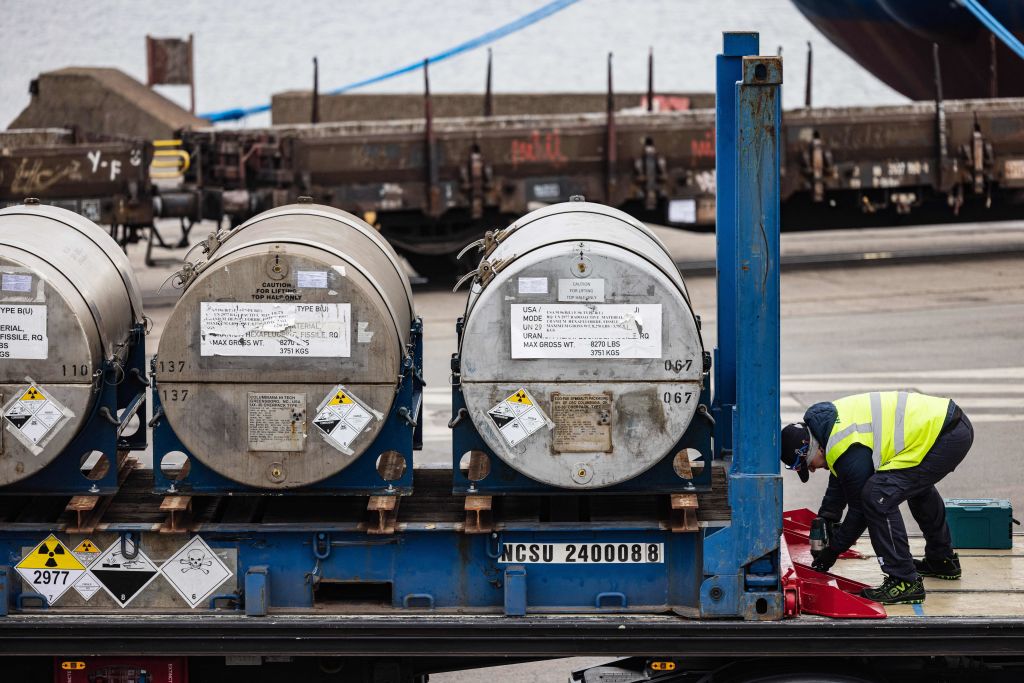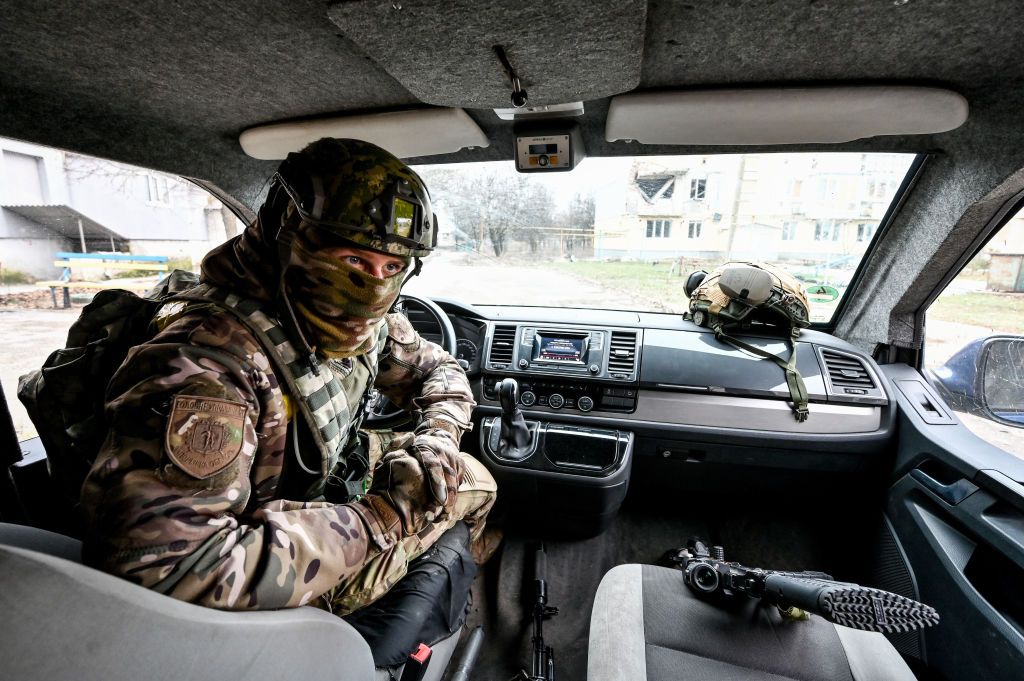Steven Pifer: Russian nukes in Belarus - much ado about little?

Editor's Note: The opinions expressed in the op-ed section are those of the authors and do not purport to reflect the views of the Kyiv Independent.
In a March 25 interview, Russian President Vladimir Putin said Russia would deploy tactical nuclear weapons in Belarus for use by the Belarusian military. He compared this to U.S. "nuclear-sharing" with its NATO allies.
While Belarusian actions foreshadowed such a step, Putin's announcement still attracted considerable attention. Ukrainian, Polish, and European Union officials, among others, immediately expressed concern and condemned the planned deployment.
The reality is that, even if Russian nuclear arms are actually placed in Belarus, that would not increase the military threat to Ukraine or to NATO.
Putin's interview implicitly linked putting nuclear weapons in Belarus to the British intention to provide Ukraine with depleted uranium armor-piercing shells. The connection is ludicrous: depleted uranium shells are not nuclear weapons.
Putin further portrayed his decision as driven by Belarusian strongman Alexander Lukashenko, whom he claimed had "long raised the question of deploying Russian tactical nuclear weapons on the territory of Belarus."
Putin asserted that Belarus has 10 aircraft that can carry nuclear arms as well as the Iskander, a modern surface-to-surface missile capable of delivering conventional or nuclear warheads. The aircraft are Su-25s, slow jets that first began service in the early 1980s.
This development was predictable. In November 2021, Lukashenko said he would "offer Putin (the opportunity) to return nuclear weapons to Belarus." In February 2022, Lukashenko pushed through a dubious referendum making changes to Belarus' constitution, including removing language on the country's nuclear-free status.
One has to wonder whether Putin's announcement came as a surprise in Beijing.
On March 22, just four days earlier, Putin and Chinese President Xi Jinping released a joint statement that included the following language: "All nuclear powers must not deploy their nuclear weapons beyond their national territories, and they must withdraw all nuclear weapons deployed abroad."
On March 27, the Chinese Foreign Ministry's spokesperson chose not to comment on the glaring contradiction.
Putin justified his decision in part by the nuclear-sharing arrangements under which the U.S. military maintains a small number of tactical nuclear weapons (also referred to as non-strategic nuclear weapons) in Europe. In a war, they could be turned over for delivery by NATO member air forces. The current number of these B61 nuclear gravity bombs is believed to be about 100.
That number is down from about 500 in 2005. The idea of withdrawing U.S. nuclear weapons later gained some traction in Europe, but Russia's 2014 seizure of Crimea and its involvement in the Donbas fighting smothered that, and then came the all-out invasion launched in February 2022. As its 2022 Strategic Concept made clear, NATO expects to remain a nuclear alliance.
The Russian decision will not alter the nuclear balance in Europe or increase the threat to Ukraine or to NATO in any meaningful way.
Russia's nuclear arsenal – the largest in the world – includes some 1,900 non-strategic nuclear weapons, which can be delivered by surface-to-surface missiles, land-based aircraft, and sea-based systems. In addition, Russia has some 2,500 strategic nuclear weapons. Given the array of weaponry, deployment of tactical nuclear arms in Belarus would not provide Russia additional capability against Ukraine.
Nor would these deployments increase the threat to NATO countries. Russia has deployed, at least on a temporary basis, Iskander missiles to Russia's Kaliningrad exclave, sandwiched between Poland and Lithuania, since 2016. They could cover virtually the same target set as Iskanders in Belarus.
As for the Belarusian aircraft, Su-25s have been used by the Russians in Ukraine in an air campaign that is widely described as unimpressive.
If the planned deployment will not increase Russian nuclear capabilities in any consequential way, why did Putin announce it?
One can only speculate, but Putin’s war has brought little good news to the Kremlin over the past seven months. Russian soldiers and mercenaries have tried to capture Bakhmut for more than nine months. Bakhmut holds, and the primary result seems to be grievous casualties in the Russian ranks.
Putin likes to appear strong and to show that he can take provocative steps to retaliate for actions he does not like. Perhaps he meant the Belarus deployment as a response to the British depleted uranium shells, or to the arrival of the first Leopard tanks in Ukraine, or to the failure of his forces to win the day in Bakhmut.
Only the Kremlin knows for sure, but the announcement of a nuclear arms deployment that has no real military impact seems somewhat desperate on Putin’s part, even a bit pathetic.
It will fail if Kyiv and Western capitals allow it to fail.
The one who ought to worry is Lukashenko. He surely understands that any nuclear weapons in Belarus will remain firmly under Russian control. Ever more dependent on Putin (just as Putin seems ever more dependent on Xi), Lukashenko might want to mind what he has left of Belarusian sovereignty.
The Russian Foreign Ministry rebutted Western concerns about the planned deployment by noting that the tactical nuclear arms would be placed on the territory of the Union State. It is almost as if Russian officials consider Belarusian territory their own.














